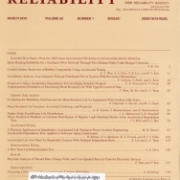Research paper accepted by IEEE Transactions on Reliability
Resilience is an important capability for many complex systems to mitigate the impact of extreme events as well as timely restoration of system performance in the aftermath of a disruptive event. In this paper, we investigate a bi-level pre-disaster resilience-based design optimization approach for the configuration of logistics service centers. In the bi-level program, the upper-level model considers the impact of potential disruptive events, and characterizes system planners’ decision regarding possible service center configuration that consists of two decision variables: construction of service center at candidate sites and their specific capacities. The optimization in the upper-level model considers both the travel time of each customer from their origins to the service centers and the within-center service time including average waiting time in the queue and mean processing time. The lower-level model captures customers’ behavior in choosing the distribution center to fulfill their requests with the goal of minimizing the cumulative travel time for all the customers. The objective of the formulated bi-level program is to maximize the resilience of the service center configuration, thereby increasing the ability of the system to withstand unexpected events. To tackle this NP-hard optimization problem, an adaptive importance sampling approach – cross entropy-based method – is leveraged to generate samples that gradually concentrates all its mass in the proximity of the optimal solution in an iterative way. A numerical example is used to illustrate the procedures of the developed method and demonstrate the effectiveness of the proposed methodology.


